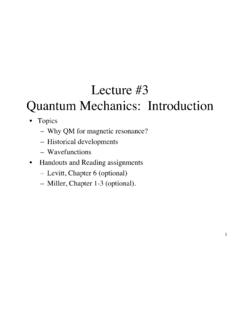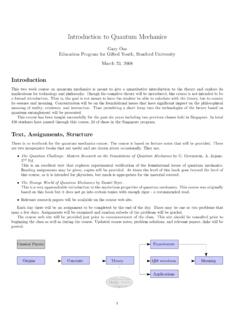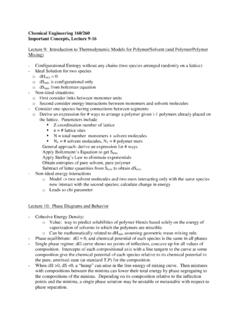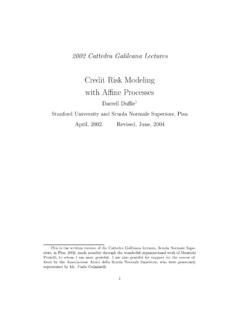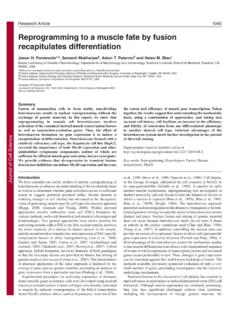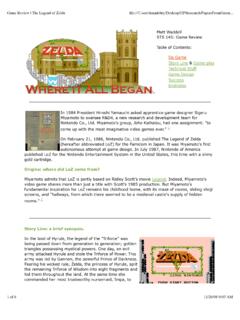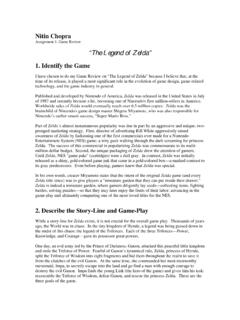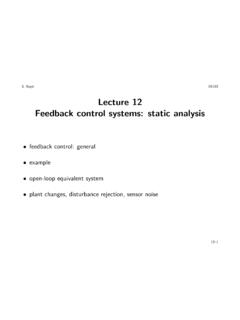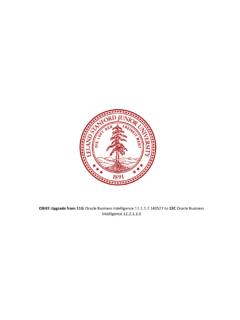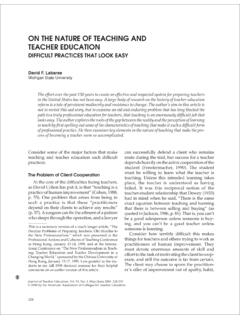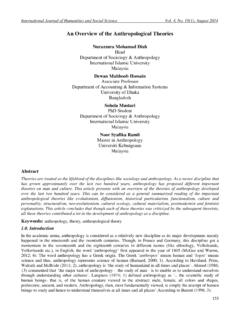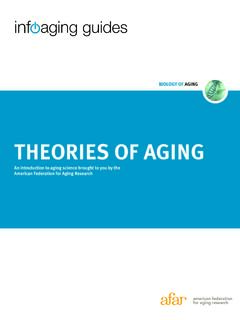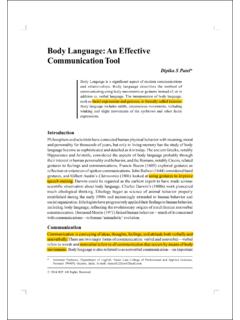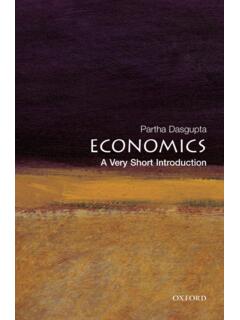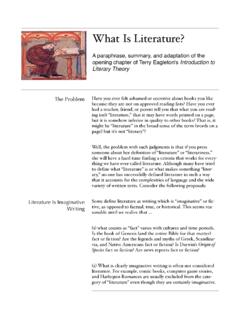Transcription of #1 Introduction – How people learn
1 #1 Introduction How people learn12/27/01 EPISODE #1 Introduction CHAPTERHOW people learn : Introduction TO LEARNING THEORIESD eveloped by Linda-Darling Hammond,Kim Austin, Suzanne Orcutt, andJim RossoStanford University School of Education 1 The Learning Classroom: theory into Practice A Telecourse for Teacher Education and Professional Development 1 Copyright 2001, Stanford University#1 Introduction How people learn p. 2 EPISODE #1: Introduction CHAPTERHOW people learn : Introduction TO LEARNING THEORIESI. UNIT OVERVIEWHISTORY OF LEARNING THEORYI believe that (the) educational process has two sides one psychologicaland one sociological.
2 Profound differences in theory are nevergratuitous or invented. They grow out of conflicting elements in agenuine Dewey, In Dworkin, M. (1959) Dewey on Education pp. 20, 91 PHILOSOPHY-BASED LEARNING THEORYP eople have been trying to understand learning for over 2000 years. Learningtheorists have carried out a debate on how people learn that began at least as far back asthe Greek philosophers, Socrates (469 399 ), Plato (427 347 ), and Aristotle(384 322 ). The debates that have occurred through the ages reoccur today in avariety of viewpoints about the purposes of education and about how to encouragelearning. To a substantial extent, the most effective strategies for learning depend onwhat kind of learning is desired and toward what and one of his students, Aristotle, were early entrants into the debate abouthow people learn .
3 They asked, Is truth and knowledge to be found within us(rationalism) or is it to be found outside of ourselves by using our senses (empiricism)? Plato, as a rationalist, developed the belief that knowledge and truth can be discovered byself-reflection. Aristotle, the empiricist, used his senses to look for truth and knowledgein the world outside of him. From his empirical base Aristotle developed a scientificmethod of gathering data to study the world around him. Socrates developed the dialecticmethod of discovering truth through conversations with fellow citizens (Monroe, 1925).Inquiry methods owe much of their genesis to the thinking of Aristotle and others whofollowed this line of thinking.
4 Strategies that call for discourse and reflection as tools fordeveloping thinking owe much to Socrates and Plato.#1 Introduction How people learn p. 3 The Romans differed from the Greeks in their concept of education. The meaningof life did not intrigue them as much as developing a citizenry that could contribute tosociety in a practical way, for building roads and aqueducts. The Romans emphasizededucation as vocational training, rather than as training of the mind for the discovery oftruth. Modern vocational education and apprenticeship methods are reminiscent of theRoman approach to education. As we will see, however, strategies to encouragecognitive apprenticeships combine the modeling inherent in learning by guided doingwith the discourse, reflection, and inquiry that the Greeks suggested to train the the Roman Catholic Church became a strong force in European daily life(500 to 1500 ), learning took place through the church, through monasteries,and through their school system, which included the universities (12th century) theChurch built throughout Europe.
5 Knowledge was transmitted from the priest to thepeople (Monroe, 1925). Much learning was the memorization and recitation of scriptureby rote and the learning of trades by apprenticeship. The primary conception of thepurpose of education was transmission-based. Many classrooms today continue atransmission-based conception of learning as the passing on of information from theteacher to the student, with little interest in transforming it or using it for novel Renaissance (15th to the 17th centuries) revived the Greek concept of liberaleducation, which stressed education as an exploration of the arts and philosophers fought for freedom of thought, and thus Humanism, a study ofhuman values that are not religion-based, was born.
6 By the sixteenth century the controlof the Catholic Church was being challenged on a number of fronts, from Copernicus(1473 1543) who suggested that the sun rather than the earth was the center of the SolarSystem, to Martin Luther (1483 1546) who sought to secularize education (Monroe,1925). The notions of individual inquiry and discovery as bases for learning werereinforced in the Renaissance. In a sense the recurring ideological debates over educationfor basic skills the reproduction of facts and rudimentary skills vs. education forthinking the effort to understand ideas and use knowledge for broader purposes replaythe medieval vs. Renaissance conceptions of the purposes of Descartes (1596 1650) revived the Platonic concept of innate believed that ideas existed within human beings prior to experience and that#1 Introduction How people learn p.
7 4 God was an example of an innate idea. He recognized that the body could be appreciatedand studied as a zoological machine, while the mind was separate and free from the was one of the first to define precisely the ability of the environment and the mind toinfluence and initiate behavior. He also described how the body could produceunintended behaviors. Descartes first description of reflex action was influential inpsychology for over 300 years (Hergenhahn, 1976). While this findings supported thework of behavioral psychologists seeking to understand the genesis of behaviors, hisfocus on the mind also supported the work of later cognitive scientists who sought tounderstand the thinking process Locke (1632 - 1704) revived Aristotle s empiricism with the concept that thechild s mind is a blank tablet (tabula rasa) that gets shaped and formed by his/her ownexperiences.
8 He believed the mind becomes what it experiences from the outside world. Let us suppose the mind to be, as we say, white paper, void of all characters, withoutany ideas: How comes it to be furnished? .. whence has it all the materials of reason andknowledge? .. from experience (Locke, quoted in Hilgard and Bower 1975). The mindgathers data through the senses and creates simple ideas from experience; these simpleideas combine to develop complex ideas. Locke believed that education should structureexperiences for students and that one essential learning was the kind of discipline thatcould be developed through the study of mathematics (Hergenhahn, 1976). The idea thatdifferent disciplines provide qualitatively different mental experiences and means oftraining the mind undergirds the basis of the discipline-based liberal arts Rousseau (1712 1778) was one of the first philosophers to suggestthat education should be shaped to the child.
9 He celebrated the concept of childhood andfelt that children should be allowed to develop naturally. The only habit which the childshould be allowed to form is to contract no habit whatever. (Rousseau, quoted in Hilgardand Bower, 1975) In Rousseau s novel, Emile (Rousseau, 2000), the hero learns aboutlife through his experiences in life. Complex ideas are built from simple ideas that aregathered from the world around him (Hilgard and Bower, 1975). The child-centeredphilosophies of Dewey, Montessori, Piaget and others follow in part from similar (1724 1804) refined and modernized Plato s rationalist theory with hissuggestion that a priori knowledge was knowledge that was present before experience.
10 #1 Introduction How people learn p. 5 For Kant, awareness of knowledge may begin with experience but knowledge existedprior to experience. Kant espoused that these ideas must be innate, and their purpose is tocreate an organizing structure for the data that is received by the senses. Kant was alsoone of the first to recognize the cognitive processes of the mind, the idea that the mindwas a part of the thinking process and capable of contributing to the thoughts that itdeveloped. This learning theory opened the door to Piaget and others who would furtherdevelop the ideas of cognition (Monroe, 1925).PSYCHOLOGY-BASED LEARNING THEORYThe nineteenth century brought about the scientific study of learning.
